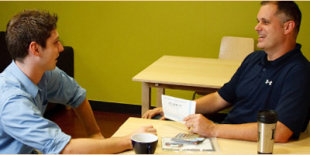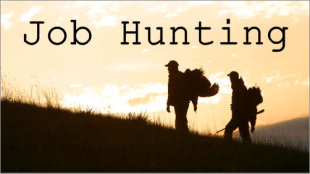If you are a yoga beginner or thinking about having a go at yoga then here are realbuzz.com's 12 tips to get you started; some helpful advice for any yoga beginner.
1. Find a good yoga teacher
It is much easier and more enjoyable, to learn yoga, with all its detailed and subtle physical and mental aspects, from an experienced, qualified, real-three-dimensional-living-breathing person, rather than from a book or video. Especially at the beginning, a teacher's presence and ability to actually see you and respond to what you are doing, is essential for building your confidence that you are doing yoga properly.
2. Respect your body's inner wisdom and limitations
Don't push yourself to do anything that feels dangerous or wrong for you. This is 'Ahimsa', the practice of non-harm, which is essential to skilful and beneficial practice of yoga. Talk to your teacher and a health professional if you are pregnant or have particular injuries such as to the knees or spine, or any serious medical condition. Find out which poses to avoid at certain times, and which will be beneficial for you. Be aware of contraindications relevant to your specific circumstances: for example some poses are not to be practiced during early pregnancy, with certain injuries, or during menstruation, whereas other poses may be very helpful.
3. Breathe
Yoga is all about finding a healthier, deeper harmony between our body and mind, and our breathing is central to this. Breathe into your whole body in the poses, and relax. There is a lot to learn about healthy breathing in yoga.
4. Don't compare yourself with others
Look inwards to your own progress; there will always be more flexible, strong and beautiful people around in your yoga class, as in life. Yoga may be fashionable, but it is not a spectator sport or a competition. Appreciate the subtle progress of your own practice, the best part of it is on the inside, in the healing awareness and unity of your own body, mind and spirit.
5. Be aware of the space around you
Yoga classes can be packed out; be aware of the need to leave enough space between yourself and others so that if you topple from your Tree Pose, you don't knock over your neighbor too. There is a certain etiquette of respectful awareness of sharing space with others that is a lovely part of yoga practice.
6. Have a sense of humor
Yoga is a quiet, focused activity, but we need not to take ourselves too seriously. We may feel ungainly and stiff as a board as we try to navigate ourselves into new poses. Humility, an inner smile and a bit of gentleness can save us from pushing ourselves to the point of strain and injury.
7. Eating and drinking and yoga
It is advisable not to eat for one or two hours before yoga practice, and to drink only small amounts of water beforehand and do not drink during practice. Avoid alcohol, sugar or caffeine before yoga.
8. Wear loose comfortable clothing (that stays on)
You will stretch your body in all directions and so you don't want to wear anything that will dig in or restrict your movement. At some point you are likely to bend your body right over and also turn upside down, so it saves wriggling about or exposing more that you wish to if you wear stretch fit gear. For women in particular, tops that won't fall down over your head in a shoulder stand might be more relaxing to wear, for example! If you prefer looser fit clothes that may slip, make sure you have substantial underwear on.
9. Make practice frequent
Little and often is more effective than occasional long sessions of yoga. Even 15 minutes a day of a few well-chosen poses can have a very positive effect on your physical, emotional and mental well-being. A regular discipline will reap more benefits, as that way the body begins to feel comfortable and familiar with the process and gradually becomes more flexible and subtly aware of the sensations, rather than 'starting from cold' again once in a while.
10. Modify postures for your body
The perfect pose we may see in a book or see a teacher demonstrate may be a long way from what our own body can currently achieve. A good yoga teacher will show you how to ease your own body carefully towards the ideal posture, perhaps with use of yoga props like extra blocks, bolsters, a belt etc., bringing attention to the principle of the inner stretch or direction of energy that the pose is aiming to evoke in us.
11. Communicate with your teacher!
Many yoga teachers will observe and assist individual students during a class. A touch may help to bring your awareness to where you actually are in your posture, and support you so that you can make your own adjustments. However, unless a teacher knows your yoga practice very well and is fully aware of any historical injuries that you have had, it is risky for them to try to forcefully adjust your posture by moving your body beyond your natural limitations into a posture; this may cause injuries, so don't be afraid to say no. In the same way, be careful of yourself and others in partner work. If a pose feels wrong or painful for you, stop and say so, your teacher may be able to help.








